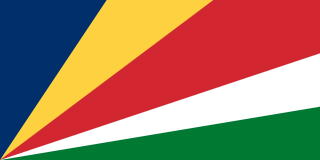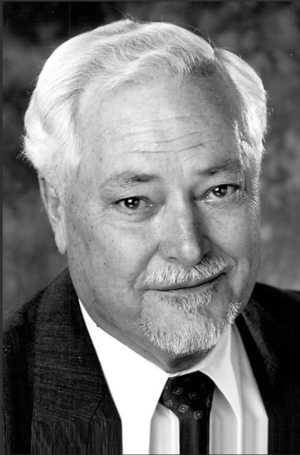Related Research Articles

Seychelles, officially the Republic of Seychelles, is an island country and archipelagic state consisting of 155 islands in the Indian Ocean. Its capital and largest city, Victoria, is 1,500 kilometres east of mainland Africa. Nearby island countries and territories include the Comoros, Madagascar, Mauritius, and the French overseas departments of Mayotte and Réunion to the south; and the Chagos Archipelago and Maldives to the east. Seychelles is the smallest country in Africa as well as the least populated sovereign African country, with an estimated population of 100,600 in 2022.

France-Albert René was a Seychellois lawyer, politician and statesman who served as the second President of Seychelles from 1977 to 2004. He also served as the country's second Prime Minister from its independence in 1976 to 1977.

The Indian Ocean Commission is an intergovernmental organisation that links African Indian Ocean nations: Comoros, Madagascar, Mauritius, Réunion, and Seychelles. There are also seven observers: China, the European Union, the Organisation internationale de la Francophonie, the Sovereign Order of Malta, India, Japan and the United Nations.

Sega is one of the major music genres of Mauritius and Réunion. It is a complete performance art, involving music, story-telling and traditional dance. Musically, the most modern forms common in Mauritius are its fusion genre Seggae and bhojpuri variations, whilst in Réunion we find the addition of maloya, the latter being much closer to the older, typical music influences originating from Madagascar. The variety of different sega forms is reflected in the multi-ethnic populous of the indigenous population of Mauritius.
Mauritians of Chinese origin, also known as Sino-Mauritians or Chinese Mauritians, are Mauritians who trace their ethnic ancestry to China.
Indo-Mauritians are Mauritians who trace their ethnic ancestry to the Republic of India or other parts of the Indian subcontinent in South Asia.
Chinois, also referred to by the Réunion Creole name Sinwa or Sinoi, are ethnic Chinese residing in Réunion, a French overseas department in the Indian Ocean. As of 2000, roughly 25,000 or more lived on the island, making them one of the region's largest Chinese communities along with Chinese South Africans, Chinese people in Madagascar, and Sino-Mauritians.
Indo-Seychellois are inhabitants of Seychelles with Indian heritage. With about 10,000 Indo-Seychellois in a total Seychellois population of nearly 100,000, they constitute a minority ethnic group in Seychelles. According to National Bureau of Statistics Seychelles in 2022, Indian community in Seychelles representing 9.0% from Seychelles population, up from 4.4% in 2010.
The Seychelles Community in the European Union is composed of former citizens of the Seychelles who now live in the European Union (EU).
Articles related to Seychelles include:

The history of Seychelles dates back to the fourth of the Portuguese India Armadas led by Vasco da Gama, though Seychelles was likely already known to Arab navigators and other sailors for many centuries. On 15 March 1503, the scrivener Thomé Lopes noted the sighting of an elevated island, doubtless one of the granitic islands and almost certainly Silhouette Island. The first recorded landing was by the men of the English East India Company ship Ascension, which arrived in Seychelles in January 1609. The islands were claimed by France in 1756. Seychelles remained uninhabited until the first settlers arrived on board the ship Thélemaque, which arrived on 27 August 1770. Captain Leblanc Lecore landed the first colonists, comprising 15 white men, eight Africans and five Indians. The Seychellois Creole language developed as a means of communication between the different races. The British frigate Orpheus commanded by Captain Henry Newcome arrived at Mahé on 16 May 1794. Terms of capitulation were drawn up and the next day Seychelles was surrendered to Britain. Following the fall of Mauritius to British forces, Captain Phillip Beaver of the Nisus arrived at Mahé on 23 April 1811 and took possession of Seychelles as a permanent colony of Britain. The Seychelles became an independent republic in 1976. Following a coup d'état, a socialist one-party state ruled the country from 1977 to 1993. The subsequent democratic Presidential elections were won by candidates of the same party.
Chinese people in Madagascar are a minority ethnic group of Madagascar and form Africa's third largest overseas Chinese population with a population estimated at between 70,000 and 100,000 in 2011. They are divided between local Chinese population called "Sinoa zanatany" who arrived during the french colonization, speaking mostly malagasy dialects, located in eastern and southeastern part of Madagascar and post-colonial chinese migrants speaking mostly Mandarin who live mainly in the capital Antananarivo.
Ralph Jean-Louis is a Seychellois football manager and former player. He manages the Seychelles men's national team. He also used to manage St Michel United, a team in the Seychelles First Division. As a player, he played eleven years for the Seychelles national team as a midfielder and striker. At club level, he played for Bel Air FC, Anse-aux-Pins FC and St Michel United. He won two bronze medals as a player at the Indian Ocean Island Games as well as a gold as a manager.
There is a large population of Chinese people in Nigeria which can include Chinese expatriates and descendants born in Nigeria with Hakka ancestry.
The Réunion women's national football team is the regional football team of Réunion, a French island, and is not recognised by FIFA. They have played international matches against Egypt, South Africa, Zimbabwe, Uganda and Mauritius. There is a two-level women's league in the country, with promotion and relegation between each division.
Françoise Lionnet serves as acting chair of the Committee on Degrees in Studies of Women, Gender and Sexuality at Harvard University, where she is professor of Romance languages and literatures, comparative literature, and African and African American studies. She is distinguished research professor of comparative literature and French and Francophone studies at UCLA, and a research associate of the Centre for Indian Studies in Africa at the University of Witwatersrand, Johannesburg. She served as director of the African Studies Center and Program Co-Director of UCLA's Mellon Postdoctoral Fellowship in the Humanities: Cultures in Transnational Perspective.

Dr Jean Désiré MaximeFerrari, KSS, OBE was a politician and former obstetrician who held several different positions in the government of the Seychelles. He was widely regarded as an activist against corrupt governmental practices and a champion of human rights and democracy in the African island nations of the Indian Ocean.
Natacha Diona Bibi is a Seychellois footballer and athlete who plays as a forward for the Seychelles national team.
Hahime Choisanne (?–1874), also written as Hayme, Ahime, or Hahyme Choisanne based on his Chinese name Lu Caixin, pronounced Log Choi Sin in Fujian dialect and Look Soi San in Cantonese dialect, was wealthy merchant from Fujian province, China, during the Qing dynasty period. He arrived in British Mauritius in 1816 and was naturalized in 1847. He became one of the prominent leading figures for the Chinese community during the colonial period of Mauritius and is recognized as having contributed to the boost of Chinese trading community to Mauritius during the British colonial period. He was also the founding father of the Kwan Tee Pagoda, founded in 1842, at Les Salines, Mauritius, a pagoda associated with the cult of Guan Di, the god of wealth, war, and the righteous and the benefactor. Choisanne was succeeded by Affan Tank Wen, who became the second Kapitan of the Chinese community in Mauritius.
References
Notes
Sources
- An, Ran (2007-09-12), "塞席爾領導人工作勤勉 首任總統有1/4中國血統", China Radio International, retrieved 2008-10-31
- Mahoune, Jean-Claude Pascal (2000), "Seychellois of Asian Origin", International Institute for Asian Studies Newsletter, 20, retrieved 2008-10-31
- Wang, Xingye (2008-01-28), "我是塞舌尔第一位正式汉语教师 (I was Seychelles' first official Chinese language teacher)", Overseas Chinese Net, People's Republic of China: Chinese Language Educational Foundation, retrieved 2008-10-31
- Yap, Melanie; Leong Man, Dianne (1996), Colour, Confusion, and Concessions: The History of the Chinese in South Africa, Hong Kong University Press, ISBN 978-962-209-424-6
- Chinese Language Educational Foundation (1999), "1999年底非洲国家和地区华侨、华人人口数 (1999 year-end statistics on Chinese expatriate and overseas Chinese population numbers in African countries and territories)", Overseas Chinese Net, archived from the original on 2006-12-31, retrieved 2008-10-30